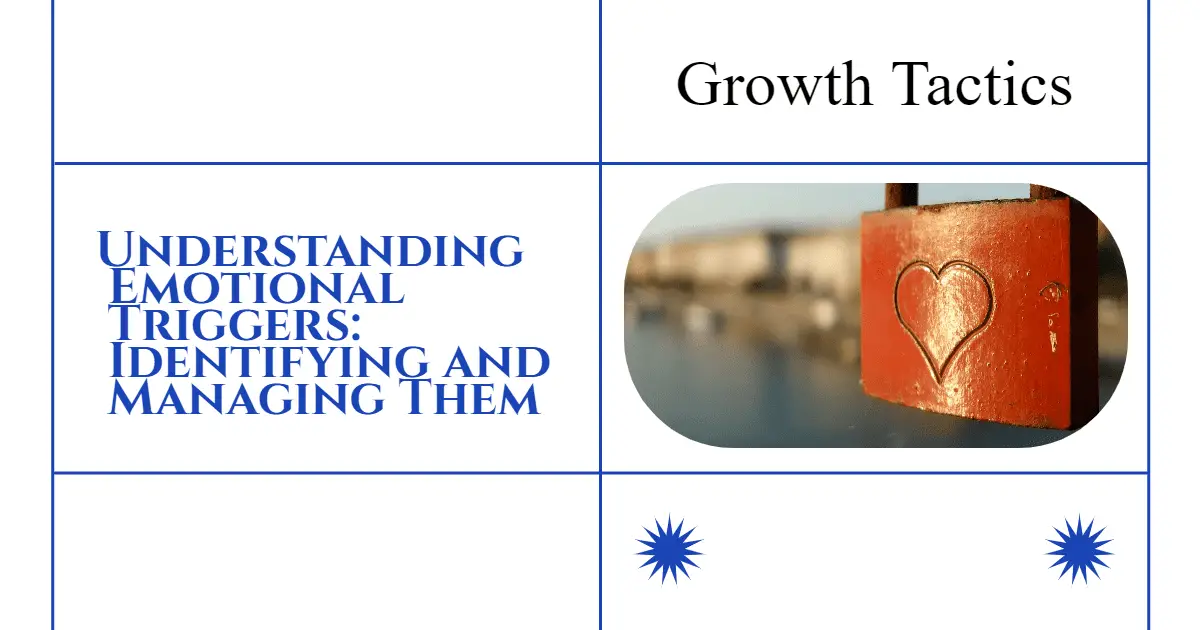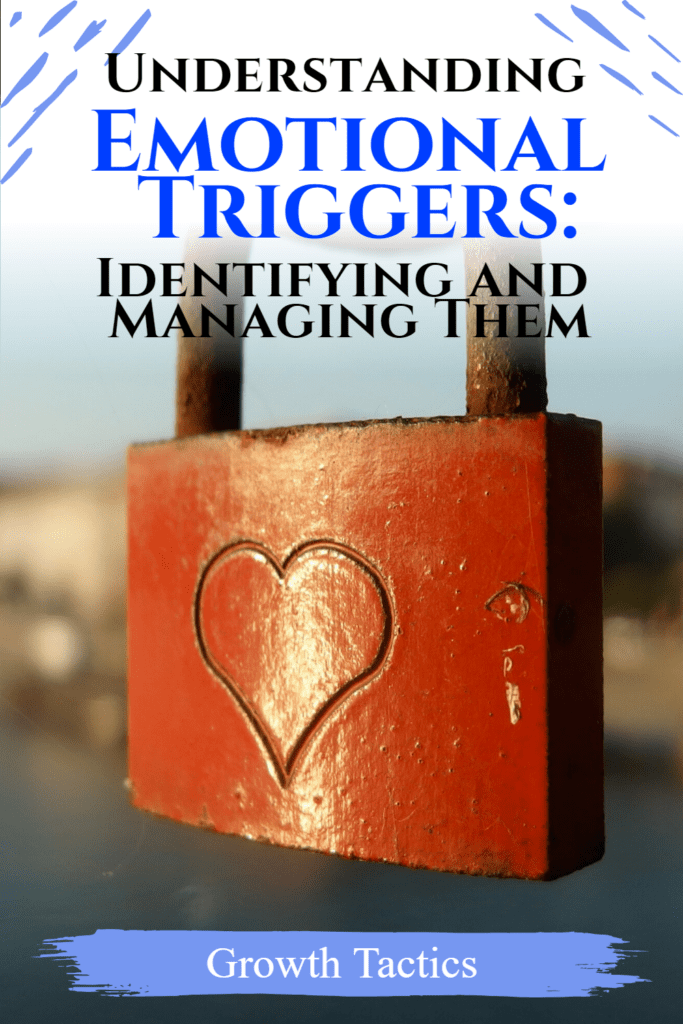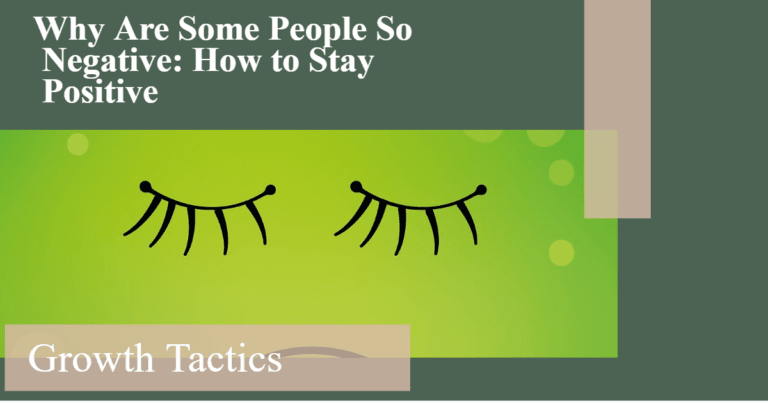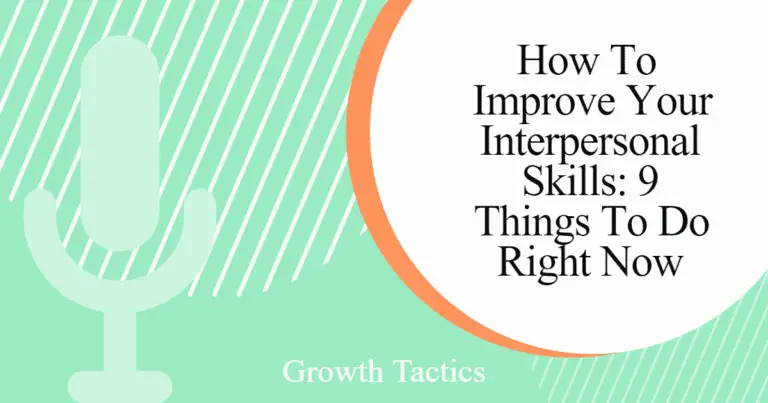Emotions are an integral part of our lives, influencing our thoughts, behaviors, and interactions with others. However, we often overlook the connection between our emotions and the triggers that cause them. In this article, we aim to shed light on the concept of emotional triggers, explore their impact on our well-being, and provide insights into how to identify and manage them effectively. By gaining a deeper understanding of emotional triggers, we can enhance our emotional intelligence and navigate through life with greater self-awareness and control.
Jump To Section
What Are Emotional Triggers?
Emotional triggers are stimuli or situations that elicit strong emotional responses within us. They can be anything from words and phrases to specific memories or even certain people. These triggers have the power to influence our emotional state and shape our reactions and behaviors. It’s important to note that triggers can evoke both positive and negative emotional responses, depending on our individual experiences and perspectives.
Identifying Emotional Triggers
To effectively manage emotional triggers, it is crucial to first recognize and identify them. This requires a conscious effort to reflect on our emotional responses in different situations. By paying attention to our feelings, we can start identifying patterns and link them back to specific triggers. Did a particular event or interaction spark anger, sadness, or anxiety within us? By pinpointing the triggers that evoke such emotional responses, we can gain valuable insights into our emotional landscape.
Common Emotional Triggers
Emotional triggers can manifest in various forms and differ from person to person. It is essential to be aware of some common triggers that many individuals experience.
Words or Phrases
Certain words or phrases can have a profound impact on our emotional well-being. They may remind us of past experiences, trigger fearful thoughts, or bring up painful memories.
Memories and Past Experiences
Our past experiences hold the power to trigger strong emotional responses. A certain smell, sight, or sound associated with a past event or trauma can evoke intense emotions and bring back vivid memories.
Certain Individuals
Interactions with specific individuals can be triggers for intense emotional reactions. These individuals may remind us of a past hurt, provoke feelings of jealousy or insecurity, or simply have a personality that clashes with our own.
Stressful Situations
High-pressure situations like public speaking or conflict can trigger emotional responses such as anxiety, stress, or anger.
Recognizing and understanding these common emotional triggers can help us better navigate our emotional landscape and develop strategies to manage and respond to them effectively.
Managing Emotional Triggers
Once we have identified our emotional triggers, the next step is to develop strategies for managing them effectively. Here are some approaches to consider:
Awareness and Acceptance
Recognize that emotional triggers are a normal part of human experience. Acknowledge that certain situations or stimuli can elicit emotional responses and accept that these responses are valid. By understanding that triggers are a natural occurrence, we can approach them with greater self-compassion and understanding.
Self-Reflection and Understanding
Take time to reflect on past experiences that may have contributed to the development of specific triggers. Understanding the underlying causes can help us develop coping mechanisms and gain a deeper sense of self-awareness. Engage in activities like journaling or therapy to explore the roots of these triggers and gain insights into your emotional landscape.
Self-Care Practices
Engage in activities that promote mental and emotional well-being. Practices such as mindfulness, engaging in hobbies, exercising, or seeking professional support can help mitigate the impact of emotional triggers. Prioritizing self-care and self-soothing strategies allows us to build resilience and create a solid foundation for managing triggers effectively.
Communication and Boundary Setting
Openly communicate with others about your triggers. Express your needs, set boundaries, and ask for support when necessary. Creating a safe environment and reducing triggering situations can significantly contribute to managing emotional triggers effectively. By advocating for yourself and clearly communicating your triggers, you can establish healthier dynamics in your relationships.
Practice Grounding Techniques
Grounding techniques can help bring you back to the present moment when you’re feeling triggered. Some examples include deep breathing exercises, focusing on your senses (such as noticing the sounds around you or feeling the texture of an object), or repeating a calming mantra or affirmation.
Develop Coping Strategies
Identify coping strategies that work best for you when faced with emotional triggers. This might include engaging in a creative outlet, talking to a trusted friend or therapist, engaging in physical activity, or listening to calming music. Experiment with different techniques to find what works best for you.
Create a Support System
Reach out to supportive individuals who understand your triggers and can provide a safe space for you to express yourself. Share your triggers with them and let them know how they can best support you. Having a strong support system in place can make a significant difference in managing emotional triggers.
Challenge Negative Thoughts
When triggers arise, negative thoughts and assumptions often accompany them. Practice challenging these thoughts and replacing them with more positive, realistic ones. This can help reframe the situation and reduce the intensity of the trigger’s impact on your emotions.
Implement Stress-Reduction Techniques
Regularly engage in stress-reducing activities such as exercise, meditation, or mindfulness. These practices can help lower overall stress levels and make you more resilient when faced with emotional triggers.
Create a Safe Space
Designate a specific area or activity where you feel safe and calm. This could be a cozy corner at home, a calming playlist, or engaging in a hobby that brings you joy. Having a designated safe space can provide a refuge when triggers arise.
Seek Professional Help
If your emotional triggers significantly impact your daily life and well-being, don’t hesitate to seek support from a therapist or counselor. They can help you explore triggers more deeply and develop personalized strategies for managing them.
By implementing these strategies, you can navigate your emotional triggers with greater control and make choices that align with your well-being. Each individual’s journey is unique, so exploring these strategies further and seeking support from professionals or support groups can provide additional guidance and tailored approaches to managing emotional triggers.
Taking Care of Yourself
Managing emotional triggers can be challenging, and it’s important to prioritize self-care throughout the process. Here are some essential self-care practices to support your well-being:
1. Nurture Your Physical Health
Take care of your physical health by getting regular exercise, eating a balanced diet, and getting enough sleep. Engaging in physical activities can help release tension and boost your mood, while proper nutrition and sleep contribute to optimal mental and emotional functioning.
2. Practice Mindfulness and Relaxation Techniques
Incorporate mindfulness and relaxation techniques into your daily routine. Meditation, yoga, deep breathing exercises, and progressive muscle relaxation can promote relaxation, reduce stress levels, and enhance your ability to manage emotional triggers.
3. Set Boundaries and Prioritize Your Needs
Establish clear boundaries that protect your emotional well-being. Learn to say no when you need to and don’t feel guilty about prioritizing your own needs. Taking care of yourself is essential for managing emotional triggers effectively.
4. Engage in Activities That Bring You Joy
Make time for activities that bring you joy and help you relax. Engaging in hobbies, spending time in nature, listening to music, or reading can provide a sense of calm and happiness, allowing you to recharge and better deal with emotional triggers.
5. Seek Support from Loved Ones
Reach out to trusted friends, family members, or support groups who can offer understanding and empathy. Having a support network can provide valuable emotional support and assistance in managing triggers.
6. Practice Self-Compassion
Be kind and compassionate to yourself. Understand that managing emotional triggers can be a process, and it’s normal to have ups and downs. Treat yourself with the same compassion and understanding that you would extend to a loved one facing similar challenges.
7. Regularly Check-In with Yourself
Take time to check in with yourself and assess your emotional well-being. Ask yourself how you’re feeling and if there are any triggers that have recently affected you. Regular self-reflection can help you stay attuned to your emotions and identify any patterns or triggers that need attention.
Remember, self-care is not selfish; it’s necessary for your overall well-being. By prioritizing self-care practices and establishing healthy habits, you can effectively manage your emotional triggers and cultivate a sense of inner balance and resilience.
Conclusion
Emotional triggers are a normal part of life, but managing them effectively requires self-awareness, healthy coping skills, and emotional resilience. By understanding your triggers and developing strategies for managing them, you can cultivate greater emotional well-being and resilience. Prioritize self-care, seek support from loved ones, and embrace growth as you work through your triggers. With time and practice, you can build the emotional resilience needed to navigate life’s challenges with greater confidence and ease.








